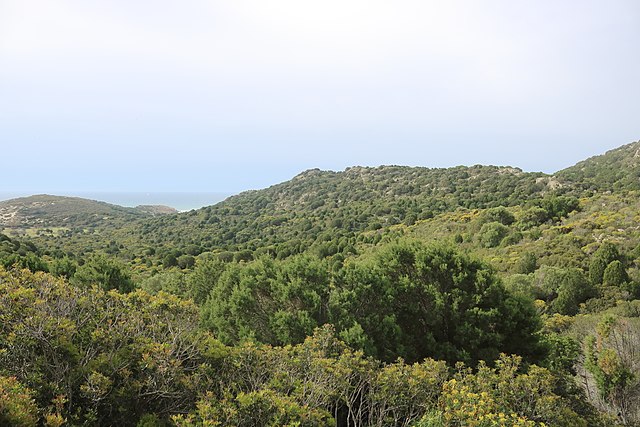The signing of the articles of association marked the establishment of the National Biodiversity Future Centre (NBFC): a network of 48 partners coordinated by the National Research Council (CNR).
The initiative – the most ambitious ever set up in the field of biodiversity research and innovation in Italy – was established in response to the Call for the strengthening of research structures and the creation of R&D “national champions” on specific key enabling technologies, published by the Ministry of University and Research (MUR).
The project is now on its way to becoming one of the 5 national research centres envisaged under Component 2 “From Research to Business”, Mission 4 “Education and Research” of the National Recovery and Resilience Plan (NRRP). The NRRP has earmarked a total of 1.6 billion euro for the national supply chain research centres.
The initiative comes at a critical time for sustainability and the protection of biodiversity. World population growth – which has doubled over the past 50 years – coupled with aspirations for higher living standards have led to constant and increasing pressure on biodiversity, resulting in overexploitation of ecosystems, global climate change and species extinction.
Despite its richness in endemic species and the great ecological variability of its habitats which make it a biodiversity hotspot in the Mediterranean, Italy has suffered significant losses and biodiversity erosion: about 45% of animal species and almost 55% of plant species are at risk of extinction, as are about 30% of habitats, mainly due to anthropogenic and environmental factors. The high species extinction rate, combined with the loss and fragmentation of terrestrial habitats, such as Mediterranean scrub, and marine habitats, such as seagrass beds, are irreversible phenomena with a devastating impact on natural resources and the cycles of the elements.
To respond to the current emergency and bring human activities back to a sustainable level, it is necessary to use appropriate tools based on sound scientific and technological knowledge which can help achieve the EU 2030 targets: reducing biodiversity loss by 30% and restoring at least 15% of degraded ecosystems through ecological recovery of habitats. It seemed therefore advisable to use a part of the NRRP funds to tackle biodiversity loss, acting quickly on the different levels of biological organization.

Through its capacity to aggregate national scientific research excellence, the NBFC will monitor, conserve and restore biodiversity in the country’s marine, terrestrial and urban ecosystems and promote biodiversity by making it a central element of sustainable development. In pursuit of these goals, the Centre aims to achieve the following results:
- provide policymakers with effective tools to tackle biodiversity erosion (conservation and restoration), quantify ecosystem services and implement actions to conserve and restore biodiversity across the Mediterranean area;
- identify innovative technological solutions to reach the Green Deal goals related to the carbon sequestration capacity of ecosystems, biodiversity conservation and the circular economy principles;
- train a new class of researchers with multidisciplinary skills to address complex issues such as the environment and biodiversity;
- establish Italy as a reference country for the study and conservation of biodiversity also through the training of new professionals and the creation of green jobs;
- raise awareness and promote participation of civil society in the conservation and enhancement of biodiversity.
The Centre will have a Hub&Spoke structure, as provided for in the NRRP, with the Hub based at the University of Palermo, in Sicily, and 8 Spokes located across the country.
In addition to the CNR, the following partners are involved: National Institute of Oceanography and Applied Geophysics (OGS), Stazione Zoologica Anton Dohrn (SZN), Polytechnic University of Milan, University of Molise, University of Tuscia, University of Florence, University of Milano-Bicocca, University of Modena and Reggio Emilia, University of Naples Federico II, University of Palermo, University of Pavia, Sapienza University of Rome, University of Sassari, University of Salerno, University of Siena, University of Udine, University of Verona, University of Roma Tre, University of Salento, University of Bologna, University of Genoa, University of Padua, Polytechnic University of Marche, University of Turin, Aboca SPA Società Agricola, CINECA, CMCC-Euro-Mediterranean Centre for Climate Change, CORILA, CREA – Council for Agricultural Research and Agricultural Economics Analysis, Dompé Farmaceutici S.p.A., ENEA, ENEL, ERSAF – Ente di Ricerca Scientifica ed Alta Formazione, CIMA Foundation – International Centre on Environmental Monitoring, Edmund Mach Foundation of San Michele all’Adige, IMC Foundation – International Marine Centre NPO, Ri.MED Foundation, FS Sistemi Urbani, HUMANITAS UNIVERSITY, Infrastrutture S.p.A., Innomed srl, Italian Institute of Technology, Institute for Environmental Protection and Research, Novamont S.p.A., Campus Bio-Medico University of Rome, Sant’Anna School of Advanced Studies, Catholic University of the Sacred Heart.

